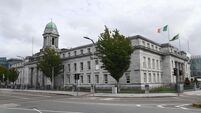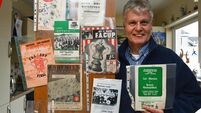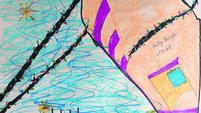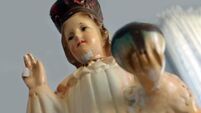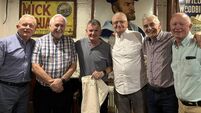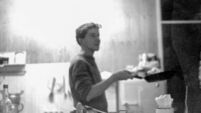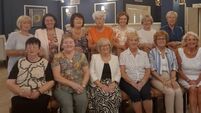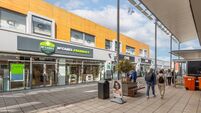Memories of life on Horse Island: ‘It was hard, but they were great people’
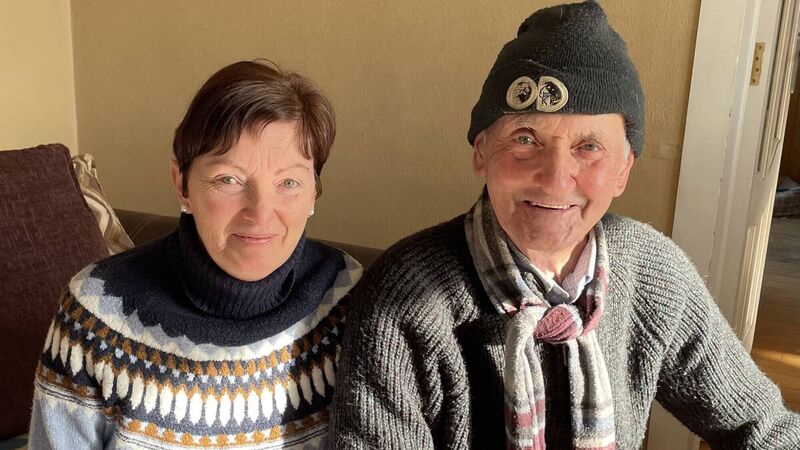
Paddy McCarthy with his daughter Mary.
Horse Island in West Cork consists of 157 acres and is situated in Roaring Water Bay. It’s less than half a mile from the mainland at Rossbrin pier, and although only separated by a narrow channel, it is a world apart.
In the 19th century, it resonated with the sounds of at least a 100 busy miners, who were employed by the West Cork Mining company to mine the copper resources on the island.
Now, only the sound of the lapping waves and the seabirds calling each other in the wind breaks the silence.
The mine had started in 1820 and closed in 1874 when the copper was depleted, leaving behind only a handful of families living full-time on the island.
One of the last residents, Paddy McCarthy, now in his 80s, left in 1965. He lives close by on the mainland, and he often looks wistfully across the water to his former island home.
Paddy remembers his life growing up on Horse Island when there were just a few families there.Today Horse Island is privately owned.
“Trá Ban is a lovely beach with beautiful white sand,” he said.
“The mines were well finished by the time I grew up there. My own father, Jeremiah McCarthy had worked there too, and by the time I was growing up, there were only a few families left full-time living on the island. It was a hard life, but they were great people.”
Paddy recalls his father with great fondness. He had a love of music, a talent he passed on to his son, Paddy’s brother, the late Connie, and this talent has also passed down through the generations of the McCarthy family, with many of Paddy’s grandchildren having a talent for playing music.
“Of course, there was no television in those days, and we didn’t even always have a radio, but in the 1950s we got a battery radio.
“My father used to love playing the fiddle in the evenings when the neighbours came ‘scoraíochting’ as visiting was called then.
“I always remember too the excitement of getting the house all ready for the stations. That was our entertainment.“
The Stations was a practice in rural Ireland where the priest would come and say a Mass in people’s homes. Families, especially the women, went to great trouble to get their homes ready for the event. As well as cleaning the house from top to bottom, it sometimes involved whitewashing or painting the house too. No detail was spared.
“My father loved playing at the Station parties; he was a mighty man for the music. He learnt it from his father, Con, who was also a Horse Island man. He died of pneumonia when he was only 56 years old.”
Paddy’s father, Jeremiah, married Bridget McCarthy from the nearby West Skeam island. There are two Skeams, West and East, and the couple went on to have five children while making their living by farming their land.
Their eldest child, Philomena, known as Philly, was followed by Connie, then Bridget, known as Bridgie, followed by Paddy himself, and then the baby of the family, Mary Josephine.
Despite the joyful arrival of their five children, terrible tragedy befell the family and all three of the McCarthy daughters died. Bridget was only eight, little Philomena was only three, and the baby Mary Josephine was only fourteen months old when she succumbed to convulsions brought on by the whooping cough, while the other two little girls died of pneumonia, leaving their brothers, Paddy and Connie, behind.
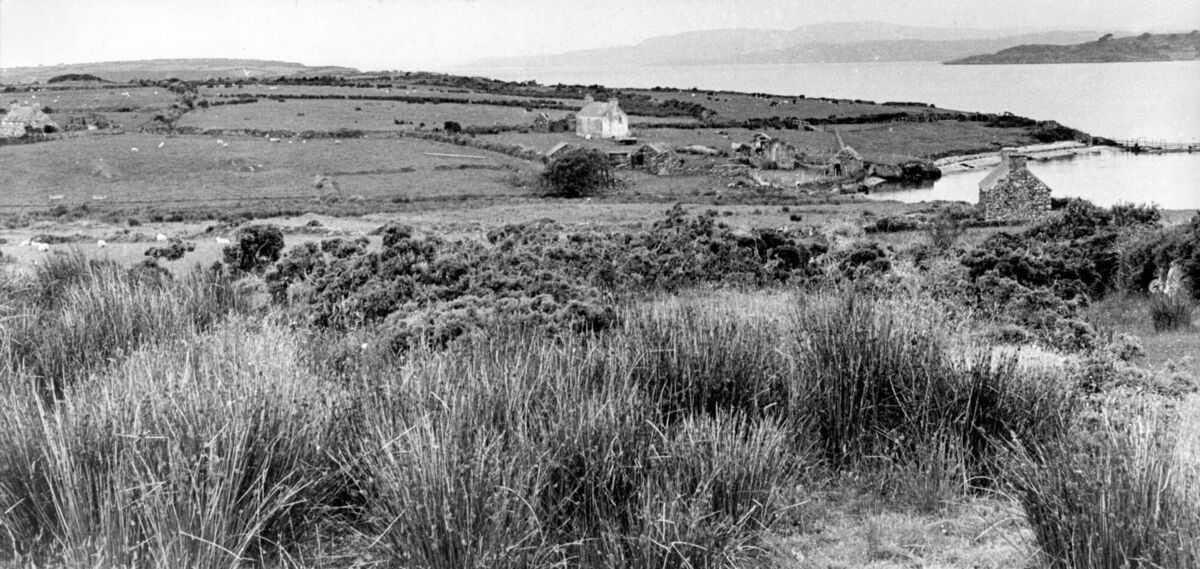
Paddy recalls the terrible anguish endured by his parents over the loss of their little girls, and in particular, his mother’s heartache. He was too young when they died to have very strong and vivid memories of his older sisters, but he clearly remembers his little sister Mary Josephine.
“My mother was a brilliant woman, but I can remember how losing her daughters marked her. I often saw her crying, and when I got married and had my own daughters, she doted on them.”
One of Paddy’s daughters, Mary, is famous locally as an amateur weather forecaster giving daily updates on her Facebook page ‘Mary’s Mizen Weather.’
“I remember Granny spoiling myself and my sister, she was a lovely woman,” she said. “I’m sure it brought her some comfort having granddaughters.”
Despite the terrible losses of her daughters, Bridget McCarthy got on with her daily life, looking after her family, and was talented at needlework, making clothes and embroidery, and she herself was a very stylish lady.
She worked on the farm, rearing poultry and making butter from scratch.
“We always had our own butter,” Paddy recalled. “My father used to milk cows every morning and evening, it was into a bucket before the milking machines in those days, and then they used to separate the milk, taking off the cream. I remember her making balls of butter for the stations.I always remember the sound of the bell ringing on the separator when it was ready.
“In the summer when the weather was hot, and we had no fridges back in those days, they used to carry it around a quarter of a mile across two fields from our house to a special spot in the cliffs which had really fine cold spring water. They used to put the butter into the hole of water there to keep it ice cold so that it would not melt.
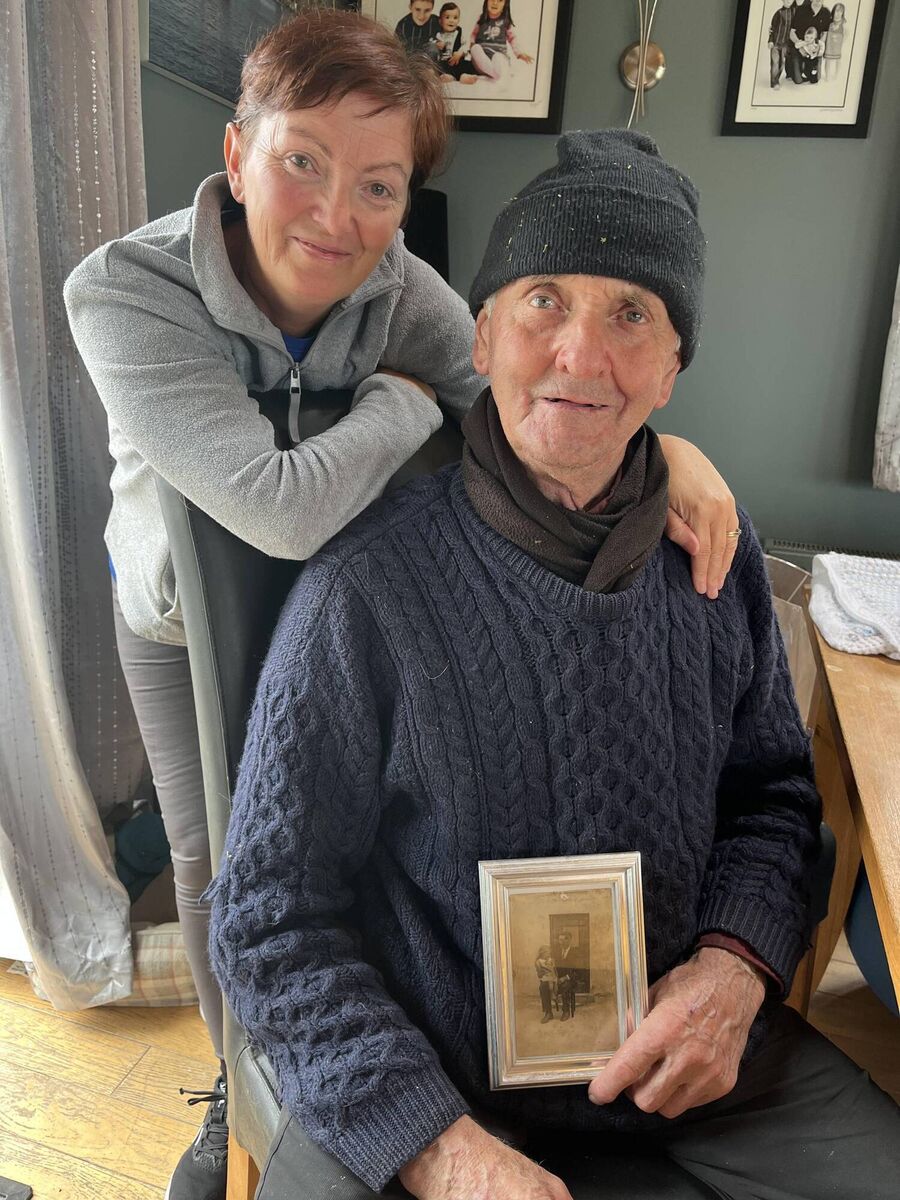
“It would be brought out to the local creamery and then carried off to be sold in Cork.”
As there was no branding in those days such as ‘Horse Island butter’, those enjoying their bread and butter in Cork back then had no idea of the process behind their enjoyment, where it came from, or how the butter was kept cold in a special spot in the cliffs of the island, and all the effort involved behind its production.
“My mother also used to rear all kinds of poultry, hens, and geese for the Christmas and guinea fowl too, and sold both the eggs and the birds,” said Paddy.
“I remember a lovely collie dog we had called Bunny. He used to be inside a lot because a neighbour had sheep, and we didn’t want him worrying them.
“My mother had a goose plucked and ready for the Christmas dinner and she came into the kitchen in the morning and saw Bunny lying down beside the goose in order to protect it from the cat who had sneaked inside.
“There was no school on the island in my time, there was in my grandfather’s time,” continued Paddy, “so we went across the water out to Rossbrin school.
“We only went from March to October to school on the mainland. Even though it was close enough by, the weather was too risky during the winter months.
“I remember once my father leaving Rossbrin at 5 o’clock in the evening, and it was 11.30 at night before he landed on the island. The wind had kicked in very badly on top of a very heavy shower. Nature is always in charge. The weather could be atrocious at times. So we didn’t risk school in the winter.”
When they did attend school, they landed at the pier and walked a half a mile to the school, passing a fairy fort along the way.
“We were scared to go near it, we had heard stories about how you would be taken away by the fairies. We were also scared of the teacher. We were always afraid of getting slapped.”
“People used to look down on us islanders back then, in the schoolyard, and later in the dancehall. We felt a bit marked out as islanders to tell you the truth.”
By the time Paddy and Connie became young men, they had a longing to go and explore more of life beyond the island, feeling that their social life was restricted.
They left in 1965, and their parents followed soon after, as they were getting on in years and didn’t want to stay without their boys.
Paddy’s father died not long after they all moved to the mainland, but his mother lived until her 80s.
Paddy’s formative years on Horse Island is now but a memory, but one which he has passed down to his family so that the strength and resilience of the island people will be recalled by generations to come.
This story was originally published in the Holly Bough.
